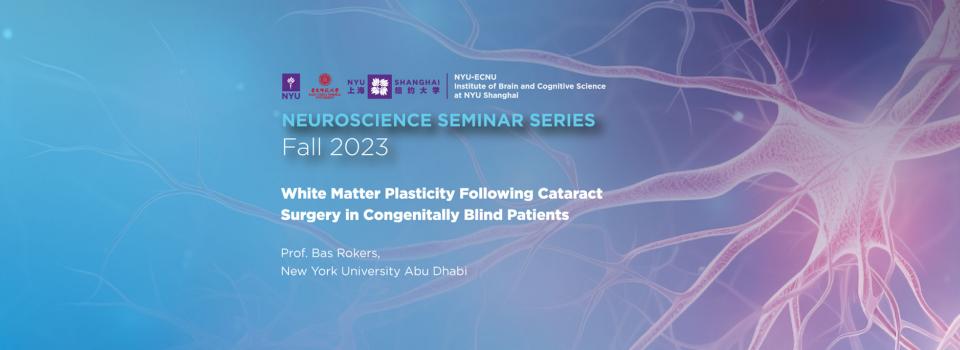
Host: Prof. Aihua Chen, East China Normal University
Abstract
The visual system develops abnormally when visual input is absent or degraded during a critical period early in life. Restoration of the visual input later in life is generally thought to have limited benefit because the visual system will lack sufficient plasticity to adapt to and utilize the information from the eyes. Recent evidence, however, shows that congenitally blind adolescents can recover both low-level and higher-level visual function following surgery. In this talk, I will discuss recent work in our lab that links changes in behavioral performance to longitudinal changes in white matter integrity in congenitally blind patients with dense bilateral cataracts. Our results suggest that sufficient plasticity remains in adolescence to partially overcome abnormal visual development and help localize the sites of neural change underlying sight recovery.
Biography
Bas Rokers is the director of the Center for Brain Health, and the ASPIRE Precision Medicine Research Institute at New York University Abu Dhabi, as well as a Global Network Professor at New York University. His work has elucidated the neural mechanisms underlying visual perception, by revealing the links between sensory input, neural activity and perceptual experience, particularly in the context of motion perception.
Dr. Rokers has used virtual and augmented reality extensively in his work to reveal the neural basis and limitations of the processing of three-dimensional motion. His research has informed technological innovation in the domain of VR/AR and has applications in healthcare, improving the understanding and treatment of visual disorders.
Dr. Rokers’s work is currently supported by the NYUAD Research Institute, ASPIRE - the technology program management pillar of Abu Dhabi’s Advanced Technology Research Council (ATRC), and the Wellcome Trust. He has published in Nature Neuroscience, Current Biology, and the Proceedings of the National Academy of Sciences amongst others. Finally, Dr. Rokers is a regular science advocate, most notably through National Geographic’s Brain Games TV series and the University of Wisconsin Virtual Brain Project.


